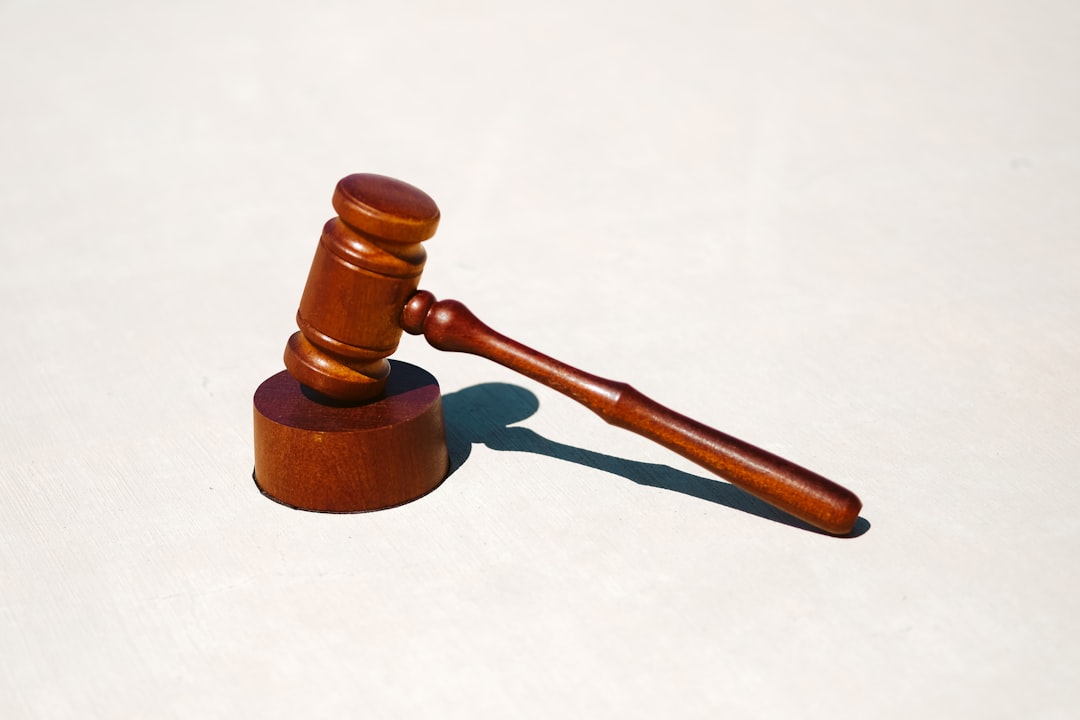Spam calls plague Maryland residents, prompting a search for solutions. Do Not Call Lawyers Maryland offer legal guidance on state and national registries to block unwanted telemarketing. Strict Maryland Do Not Call laws, enforced by PSC, provide robust protection. AI and ML technologies enhance spam detection and blocking. Residents should register on the official list, update privacy settings, hang up on unknown callers, report suspicious numbers, collaborate with service providers, and consult Do Not Call Lawyers for comprehensive legal protection.
In Maryland, spam calls pose a persistent problem, but emerging technologies offer hope. This article explores effective strategies to combat this growing concern, focusing on legal frameworks like the state’s Do Not Call laws and advanced tech solutions. We delve into the role of AI and Machine Learning in spam detection, while also highlighting best practices for user engagement. For those seeking guidance, understanding these measures is essential, especially when consulting with top-tier Do Not Call Lawyers Maryland to fortify defenses against unwanted calls.
Understanding Spam Calls: A Growing Concern in Maryland

Spam calls, a persistent nuisance across the nation, have become an increasingly pressing issue in Maryland as well. With the proliferation of telemarketing and robocalls, residents are finding their privacy invaded and lives disrupted. These unwanted calls, often promoting dubious services or products, can be particularly problematic for vulnerable populations, including the elderly and those with limited access to information. In Maryland, where a significant portion of the population is covered by area codes like 410 and 301, the volume of spam calls has led many to seek effective solutions.
Do Not Call Lawyers Maryland have become valuable resources for residents looking to protect their rights. These legal experts can guide individuals on registering with national “Do Not Call” registries and state-specific initiatives. By understanding the laws and regulations surrounding telemarketing practices, Do Not Call Lawyers Maryland play a crucial role in empowering citizens to reclaim their peace of mind and silence unwanted intrusions from spam calls.
Legal Frameworks: Do Not Call Laws in MD

In Maryland, blocking spam calls has been further bolstered by stringent Do Not Call laws, primarily designed to protect residents from unwanted telephone solicitations. These regulations are enforced by the Maryland Public Service Commission (PSC), which oversees telecommunications practices across the state. The PSC strictly regulates telemarketing activities and provides consumers with powerful tools to combat spam calls.
Maryland’s Do Not Call laws empower residents to register their phone numbers on the state’s official Do Not Call list, effectively blocking most telemarketing calls. This initiative, facilitated by the PSC, serves as a primary defense against spam calls, including those from dubious sources or fraudulent entities. For Maryland residents, seeking legal advice from Do Not Call Lawyers in MD can provide additional insights into navigating these laws and ensuring maximum protection against unwanted phone solicitations.
Advanced Tech Solutions for Spam Blocking

In the ever-evolving landscape of communication, advanced tech solutions have emerged as powerful weapons in the battle against spam calls. These innovative tools go beyond traditional methods by employing sophisticated algorithms and machine learning capabilities to identify and block unwanted calls. One notable example is the integration of artificial intelligence (AI) in Do Not Call lists. AI systems can analyze caller patterns, detect anomalies, and learn from user feedback to accurately filter out spam calls, ensuring that residents of Maryland, especially those seeking legal aid from Do Not Call Lawyers Maryland, remain undisturbed by pesky intrusions.
Furthermore, the implementation of robust data analytics plays a pivotal role in enhancing spam blocking efficiency. By examining call metadata and historical patterns, these systems can predict and prevent potential spam calls before they reach their destinations. This proactive approach not only saves time but also significantly reduces false positives, ensuring that legitimate calls are never mistakenly blocked. With such advanced tech solutions, Maryland residents can enjoy a quieter, more peaceful communication environment.
AI and Machine Learning in Spam Detection

Artificial Intelligence (AI) and Machine Learning (ML) are transforming the way spam calls are detected and blocked, offering a powerful tool in the ongoing battle against unwanted telephone marketing. These technologies utilize sophisticated algorithms to analyze vast call data sets, identifying patterns and characteristics unique to spam calls. By continuously learning from new data, AI systems can adapt and improve their accuracy over time.
In the context of Do Not Call Lawyers Maryland, ML models can be trained on local area code data, known spam patterns, and user preferences to effectively filter out nuisance calls. This ensures that residents in Maryland can enjoy a quieter line, knowing that advanced technology is actively protecting them from intrusive marketing calls.
User Engagement: Best Practices to Prevent Spam Calls

To effectively block spam calls, users in Maryland should adopt best practices that involve proactive measures and conscious engagement. One key strategy is to register on the state’s official Do Not Call list, which filters out many automated and unwanted calls. Additionally, staying informed about the latest spam call trends and technologies can empower individuals to better identify and report suspicious numbers. Regularly reviewing and updating privacy settings on communication devices and social media platforms is another crucial step. Users should also be cautious when sharing personal information online or over the phone, limiting the exposure that could attract spam calls.
Engaging in active user behavior further strengthens defenses against spam. This includes promptly hanging up on unknown callers, using call-blocking apps specifically designed to target spam, and reporting suspected spam calls to relevant authorities like the Federal Trade Commission (FTC). By collaborating with service providers who utilize advanced technologies to identify and block known spam sources, Maryland residents can significantly reduce their exposure to unwanted calls. Remember that collective user engagement is vital in maintaining a spam-free environment, especially when coupled with legal measures such as consulting Do Not Call lawyers in Maryland for comprehensive protection.






